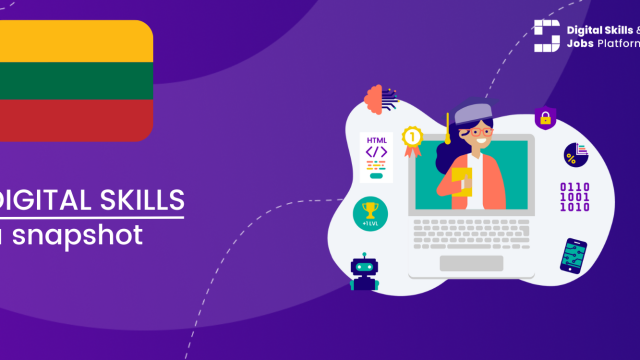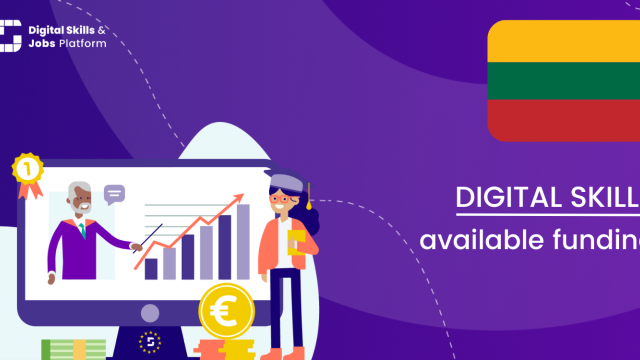Lithuania
Lithuania has achieved 52.9% basic digital skills coverage, compared to the EU average of 54%. This puts Lithuania at 61.3% of the overall target for the EU 2030 goal, which aims to have 80% of the EU population possessing at least basic digital skills. According to the Digital Decade report 2025, the percentage of ICT specialists in employment has reached 5.3% surpassing the EU average - 5%. The share of female specialists in 2024 was 18.2%. Lithuania benefits from excellent 5G coverage and a dynamic start-up ecosystem but continues to face challenges in expanding fixed Very High-Capacity Networks (VHCN) coverage, particularly in rural areas. The country is positioning itself as a niche player in semiconductor and quantum-related technologies, leveraging its strong laser industry.
Lithuania has a National coalition for digital skills and jobs led by Langas į ateitį (Window to the Future).
The Lithuanian National Digital Decade strategic roadmap developed by the the Ministry of the Economy and Innovation of Lithuania sets out the strategic goals to be achieved by 2030, monitoring their achievement, and the target paths and key measures have been developed.
Lithuania has implemented several state strategies and initiatives. The Lithuania State Digitisation Development Programme 2021-2030 promotes progressive values, emphasizing individual talent development. The OECD Skills Strategy Lithuania aims to equip young people with work and life skills, increase adult learning, and strengthen skills governance.
The Lithuanian Industry Digitisation Roadmap 2020-2030 outlines measures to digitize the industry, including the adoption of automation, robotics, and artificial intelligence. The Recovery and Resilience Plan allocates a significant budget share to digital transformation, focusing on technological solutions, public IT governance, and 5G deployment.
The Digital Education Transformation "EdTech" initiative promotes digital innovations in schools and enhances educators' digital skills. The Millennium School Progress Programme aims to improve school infrastructure and equal access to education.
The Senior Citizens Online Days campaign encourages digital skills among seniors. These efforts collectively aim to strengthen digital skills, foster innovation, and drive digital transformation in Lithuania.
Lithuania ranks 17th out of the 27 EU Member States in the DESI dashboard for the Digital Decade for the 'At least basic digital skills' indicator, with 52.9% of its population possessing at least basic digital skills.






